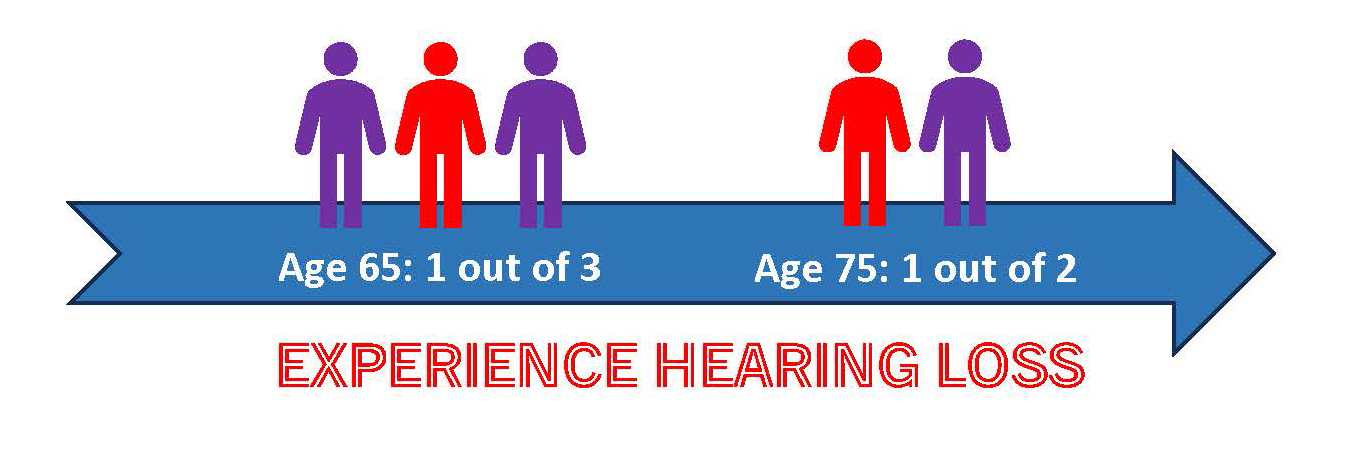New Legislation Helps Older People with Hearing Loss in Washington State

Everyone knows someone with diminished hearing. Among the AgeWise population, data varies but typically indicates that at age 65, approximately a third of people have hearing loss, and that number rises to half of people over age 75. Hearing loss treatment and accommodations are very important for this group.
Over the last few years, the Washington State Legislature has passed several bills that support people with hearing loss. In 2019, legislation was passed to require hearing aid sellers to notify purchasers about the functions and benefits of both telecoil and Bluetooth technology. In 2021, a bill that requires closed captioning on all televisions in public places was passed. And this past year, in the 2023 session, the legislature passed bills requiring coverage for hearing instruments under most private insurance policies.
This insurance coverage is a huge boon for many people with hearing loss. I lost my hearing as a result of measles at age three. My family could not afford hearing aids for me for most of my childhood, and when I did get one, it was only for one ear, even though standard treatment for bilateral hearing loss requires two aids. As an adult, I replaced my hearing aids less frequently than I should have because I could not afford them, and when I did buy new aids, I had to take out loans.
For children, untreated hearing loss results in communication challenges, an inability to learn language, isolation, depression, low self-esteem, frustration, and anger. These, in turn, become challenges in developing healthy relationships and barriers to succeeding in school. These issues play out in adulthood as a lower working capacity and more demands on the health care system, which are costly to society and to the state.
For adults, the impacts of untreated hearing loss include lower earning capacity, significant emotional and social consequences—such as a greater likelihood of depression, anxiety, paranoia, and illness—impaired memory, increased falls, and greater chances of dementia, all of which create system costs. For older adults with later onset of hearing loss, lack of treatment can be devastating.
This new hearing aid coverage will help so many people, especially many of us older adults for whom hearing loss is more prevalent.
While the Washington State Legislature cannot pass legislation affecting federal coverage such as Medicare, many Washington state residents have supplemental insurance or coverage from a retirement program to which this new insurance requirement applies. The new coverage requirement is for no less than $3,000 per ear with hearing loss every 36 months, and it’s not subject to the normal deductible. Over-the-counter hearing aids are excluded, but some people may find OTCs to be an affordable option. As a side note, many Medicare Advantage plans have some coverage for hearing aids.
When you get your hearing checked in 2024, be sure to ask about insurance coverage that may be available for the hearing aids you need
To learn more about hearing aids, visit the Hearing Loss Association of America—Washington State’s Hearing Aids 101 publication.
 Contributor Cynthia Stewart is the legislative liaison for the Hearing Loss Association of America—Washington State. The mission of HLAA-WA is to open the world of communication through information, education, support, and advocacy.
Contributor Cynthia Stewart is the legislative liaison for the Hearing Loss Association of America—Washington State. The mission of HLAA-WA is to open the world of communication through information, education, support, and advocacy.
This is the first of three articles from HLAA-WA. In the coming months, HLAA-WA will also share information about over-the-counter hearing aids and the connection between hearing loss and dementia for seniors.
This article appeared in the November 2023 issue of AgeWise King County.
Aging Network Advocacy
One of the easiest ways you can let your state legislators know what you think is to call the Washington State Legislative Hotline at 1-800-562-6000 (toll-free). All you need to do is provide your name and address—staff will determine who your legislators are—as well as your topic or bill number, and your position (e.g., “please support” or “please vote no”). Save this number for January, when the next legislative session begins.
![Aging & Disability Services for Seattle & King County [logo]](https://www.agingkingcounty.org/wp-content/themes/sads/images/seattle-ads-logo.png)
